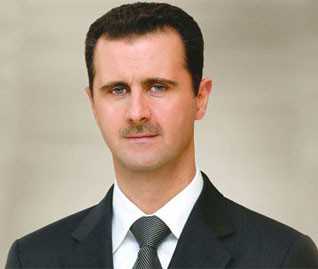Turkey riles Syria, Russia and Iran by requesting NATO surface-to-air Patriot system, designed to intercept aircraft or missiles after weeks of talks on how to secure its border.

A Turkish soldier taking up a position as gunfire is heard in the northern Syrian town of Ras al-Ain, at the Turkish border town of Ceylanpinar, Sanliurfa province, November 25, 2012. Photo by Reuters
this story is by
Reuters
NATO surface-to-air missiles due to be stationed near Turkey’s border with Syria will only be used to protect Turkish territory and not to establish a no-fly zone within Syria, the Turkish military said on Monday.
Turkey riled Syria, Russia and Iran by requesting the NATO surface-to-air Patriot system, designed to intercept aircraft or missiles, last Wednesday after weeks of talks on how to shore up security on its 900-km border as the conflict in Syria deepens.
Syria, which called the move “provocative”, and its allies including Russia and Iran oppose any development that they perceive could be a first step towards implementing a no-fly zone.
“The deployment of the air and missile defense system is only to counter an air or missile threat originating in Syria and is a measure entirely aimed at defense,” the Turkish military said in a statement.
“That it will be used to form a no-fly zone or for an offensive operation is out of the question,” it said.
Syrian rebels, despite seizing swathes of land, are almost defenseless against Syria’s air force and have called for an internationally enforced no-fly zone, a measure that helped Libyan rebels overthrow Muammar Gaddafi last year.
On Monday, Syrian jets bombed the rebels’ headquarters near the border, opposition activists in the area said.
Most foreign governments are loath to impose a no-fly zone for fear of getting dragged into the 20-month-old conflict.
A joint Turkish-NATO team will start work on Tuesday assessing where to station the missiles, how many would be needed and the number of foreign troops that would be sent to operate them, the statement said.
Within NATO, only the United States, the Netherlands and Germany possess Patriot missiles. The Netherlands has sent Patriots to Turkey twice before during both Gulf wars in 1991 and 2003.
Turkey is reluctant to be drawn into the fighting, but the proximity of Syrian bombing raids to its border is straining its nerves. It has repeatedly scrambled fighter jets along the frontier and responded in kind to stray Syrian shells that have crossed into its territory.
Turkey – a major backer of Syria’s opposition – is worried about its neighbor’s chemical weapons, the refugee crisis on its border, and what it says is Syrian support for Kurdish militants on its own soil.
via Turkey: Planned NATO missiles won’t be used to establish Syria no-fly zone – Israel News | Haaretz Daily Newspaper.

